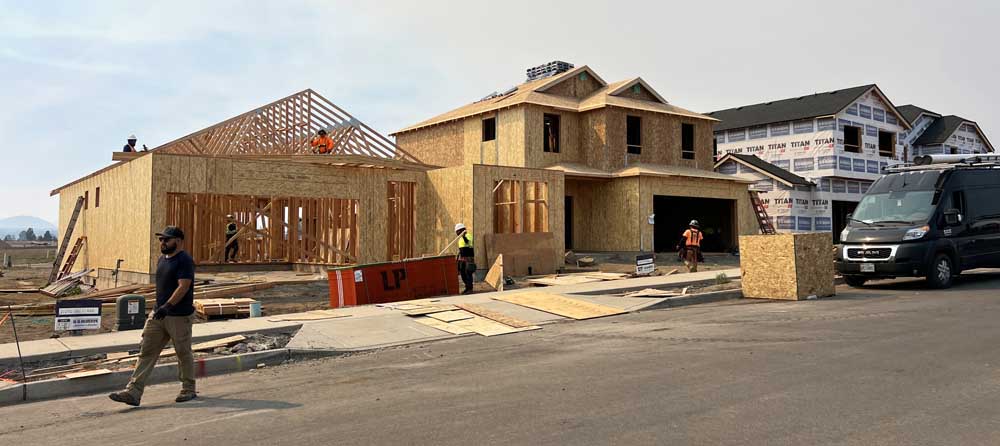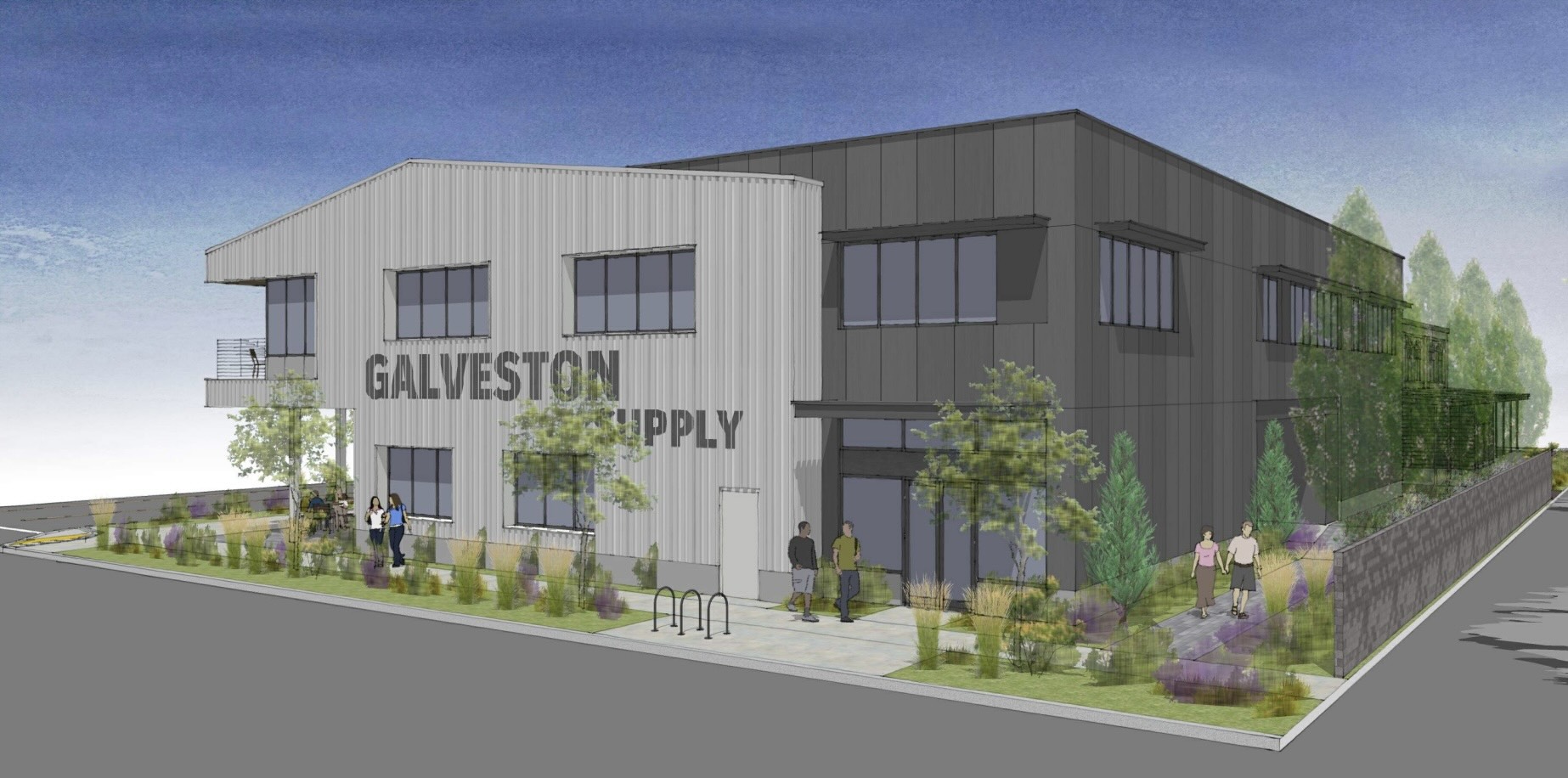Bend City Council candidates talk housing solutions
Published 5:45 am Wednesday, October 2, 2024

- Construction continues on new homes being built near the intersection of SE Pelee Drive and SE Eubanks Drive, in the Stevens Ranch development in Bend Sept. 9.
With housing issues at the forefront of the race for Bend City Council, eight candidates met at a forum Monday evening to discuss their solutions for high costs and lack of supply.
Bend renters need an income of $72,000 to avoid paying more than a third of their income on rent, while the number of cost-burdened renters is declining as they can no longer afford housing within the city. The average home price in Bend is $736,000, according to real estate company Zillow.
Trending
Candidates discussed ways to provide housing for essential workers such as teachers and nurses, policies to create affordable housing and ways the city can assist in boosting supply across Bend.
The forum was hosted by Central Oregon Daily and Partners for Affordable Housing, a group that includes Oregon Nurses Association, Bend Education Association, Bend Police Association, RootedHomes, Bend YIMBY, Central Oregon Realtors Association and Central Oregon Builders Association. Questions were provided to candidates in advance.
Eight candidates are running for four seats on council in the Nov. 5 election. Three of those are contested races.
Seat 1: Norris vs Curtis
Megan Norris, the incumbent, said she has a “proven track record” of working on housing issues during her time on council since 2023, and said she’s proud of her work building housing as a planning manager at developer Hayden Homes.
Throughout Monday’s forum, Norris emphasized the need for workforce housing.
Trending
“My number one goal is to provide housing that is attainable for people that need it most in our community,” she said.
She highlighted work of the current council to create a new tax incentive policy for developments meeting an affordability threshold, and said she would focus on leveraging a $5 million federal affordable housing grant the city received this summer for additional funds.
Her opponent, Jonathan Curtis, said throughout Monday evening that the solutions to Bend’s housing crisis lies in building eastward toward the desert rather than creating more density in the middle of the city.
Bend’s largest urban developments in standstill
“If we keep building more density, we will keep getting more traffic, especially with all these bike lanes wasting time and focus of the city, and let alone money,” he said.
He said taller housing buildings would “destroy the beauty of Bend. We do not want to make Bend like Portland.”
Oregon’s land use laws require cities to fill land within their urban growth boundaries before expanding outward. Since the city’s 2016 urban growth boundary expansion, which added 2,180 acres, approximately 1,261 acres have been annexed, according to the city. Several hundred more acres were also added through special legislation.
Pushing for more outward growth would also help the city save trees from development, Curtis said in response to a question about the city’s tree code, which requires developers to avoid cutting down trees when building, and if they must cut them down, replant or pay a fee instead.
The code is facing legal challenges from developers and a pro-housing group.
Bend’s newest policy is meant to protect urban tree canopy
Norris said she believes it’s possible to balance the city’s desire for trees and more housing.
She has recused herself from votes about the tree code, among other development-related issues, due to her employment with Hayden Homes.
One question asked candidates about creating geographical equity of housing types in Bend, mentioning concerted efforts — usually in more privileged neighborhoods where people have more time and money — to thwart hundreds of housing units, a movement sometimes called Not In My Backyard, or NIMBY.
“Housing should be a right,” Norris said. “We should be aligning our code to reflect that, so that projects that come before us are allowed by right.”
Curtis said the city should put specific projects up to the voters to decide if they move forward.
Seat 3: Perkins vs Cerveny
Megan Perkins, an incumbent, touted the city’s work on housing, saying rents are softening and home prices are stabilizing.
“What the city of Bend is doing is working,” she said.
Effective solutions are why the city received the $5 million federal grant to continue the work, she said, mentioning the city’s revolving loan fund for affordable housing and tax incentive programs.
“We just need to keep doing all of these things, all of the tools at our disposal to lower rent and home prices for everybody,” she said.
Her challenger Nick Cerveny pushed back.
“None of these ideas have taken off,” he said. “It’s been the same idea for the last six years.”
“Hopefully I have some ideas that are a little bit different,” he added.
Cerveny blamed state land use laws for putting Bend on an “artificial island,” referring to urban growth boundary restrictions on development. He said he would advocate to state lawmakers to change those laws.
Bend to pursue fast-tracked 100-acre UGB expansion
While Cerveny advocated for limiting the height of residential buildings in the city, therefore limiting density, he also sees opportunity in redeveloping commercial space on Greenwood Avenue and Third Street to build three-story apartment buildings.
He proposed the city “give the power back to the builders that know how to do this,” and wave permit fees for any application that takes longer than 30 days to process. He also proposed an extra property tax on unoccupied residences, citing vacation homes that sit empty for months out of the year.
Instead of a tree code, the city should designate specific areas for biodiversity to compensate for cutting in development areas, Cerveny said.
Perkins said she views the tree code as balanced, but didn’t rule out making changes if the protections, specifically, were holding up development.
She said she would support solutions to add density to the city for incentivizing vertical development, and pointed to her work as a leader in addressing homelessness, saying the city needs more housing to catch the lowest-income earners before they fall out of the housing market and into homelessness.
Perkins called NIMBYs “a real big problem in Bend” and said the city has considered ways to shift its land-use notice process away from specific developments and more toward getting people involved with policy change.
Bend rejects controversial Awbrey Butte development based on ‘procedural issues’
Cerveny contrasted with Perkins, saying it would be wrong to dismiss people with concerns over development.
“They do have really clear reasons why they don’t want that to happen. They’re worth being listened to,” he said.
Seat 4: Campbell vs Platt vs Wamboldt
Barb Campbell, the incumbent being challenged by Steve Platt and Chet Wamboldt, said housing costs are a factor in every decision the council makes.
“We have left no stone unturned,” except addressing the cost of realtors, calling out several other candidates who have received campaign donations from realtors associations.
Campbell praised the city’s new tax abatement program to encourage affordable housing and jobs, adding that she has heard a big barrier to vertical development is the cost to build elevators. She said the city could take better advantage of building housing infill projects in pockets of the city, as well as accessible dwelling units, or ADUs, and create housing in unconventional places like garages.
One of her challengers, Chet Wamboldt, also advocated for ADUs, saying he wants to strip down red tape for permitting. More broadly than just ADUs, Wamboldt also said he wants to create a “two-tiered” system for permitting that would fast-track applications from developers with a record of delivering projects and put developers who have failed to deliver at the back of the line.
Another candidate for Seat 4, Steve Platt, said he’s on board with city policies to lower housing costs, citing tax exemptions for multifamily units reductions in system development charges for certain levels of affordable housing.
Platt, a high school science teacher, called multifamily housing “an important part of the housing continuum,” emphasizing the need for workforce housing.
“Spending more than 30% of your income on a house is not sustainable. What are you going to do? You’re going to have to leave the city, and that’s not good for anyone,” he said.
“Not everyone is going to be happy with every decision, but the key is to keep your eye on the goal. My goal is to bring more housing of all types to the city of Bend.”
Campbell answered a question about taking political risks by floating the idea of asking taxpayers to approve a housing bond, citing the need for a “big injection of cash to actually get thousands of units in a short time.”
Wamboldt said raising taxes to help pay for infrastructure to assist development was “not on the table.”
He stressed the need for middle income housing and said he would like to see requirements for developers to build more affordable housing before the “expensive stuff.”
Both Wamboldt and Platt said they would be open to reassessing the tree code if it was determined it had a measurable impact on housing costs.
Campbell called the tree code a “clear-cutting code,” arguing it gives developers too much leeway to sacrifice trees for homes.
On NIMBYs, Wamboldt said, “If people have a problem with something to the point where they want to veto it, I don’t have a problem with that and I don’t think anybody who believes in our system should either.”







